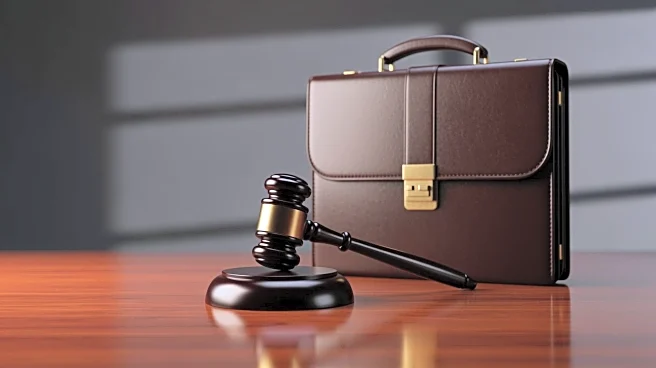What's Happening?
A staff member from Senator Tammy Duckworth's office is accused of falsely representing himself as an attorney to facilitate the release of an illegal immigrant from U.S. Immigration and Customs Enforcement
(ICE) custody. The Department of Homeland Security (DHS) reported that Edward York, employed as a Constituent Outreach Coordinator, entered an ICE facility in St. Louis, Illinois, claiming to be the lawyer of Jose Ismeal Ayuzo Sandoval, a 40-year-old illegal immigrant with a DUI conviction and four prior deportations to Mexico. York allegedly used this false identity to gain access to Sandoval and have him sign a G-28 form, which allows an attorney to represent a client in immigration matters. The incident has raised concerns about potential misrepresentation and collaboration with a law firm to cover up the act.
Why It's Important?
This incident highlights significant concerns regarding the integrity of legal processes within immigration enforcement. If true, the actions of the Senate staffer could undermine trust in governmental procedures and pose risks to law enforcement operations. The case also brings attention to the challenges faced by ICE in managing detainee releases and the potential for political interference in legal matters. The broader implications could affect public perception of immigration policies and the accountability of government officials in adhering to legal standards.
What's Next?
The DHS has requested a response from Senator Duckworth's office by November 17, seeking clarification on York's employment status and whether he acted with the knowledge of other staff members. The agency is also investigating the involvement of the Suarez Law Office in the submission of the G-28 form without Sandoval's signature. The outcome of these inquiries could lead to further scrutiny of Senate staff practices and potential legal consequences for those involved.
Beyond the Headlines
This case may prompt discussions on the ethical responsibilities of government staff and the potential need for stricter oversight and accountability measures. It also raises questions about the role of political influence in legal processes and the protection of law enforcement integrity.








